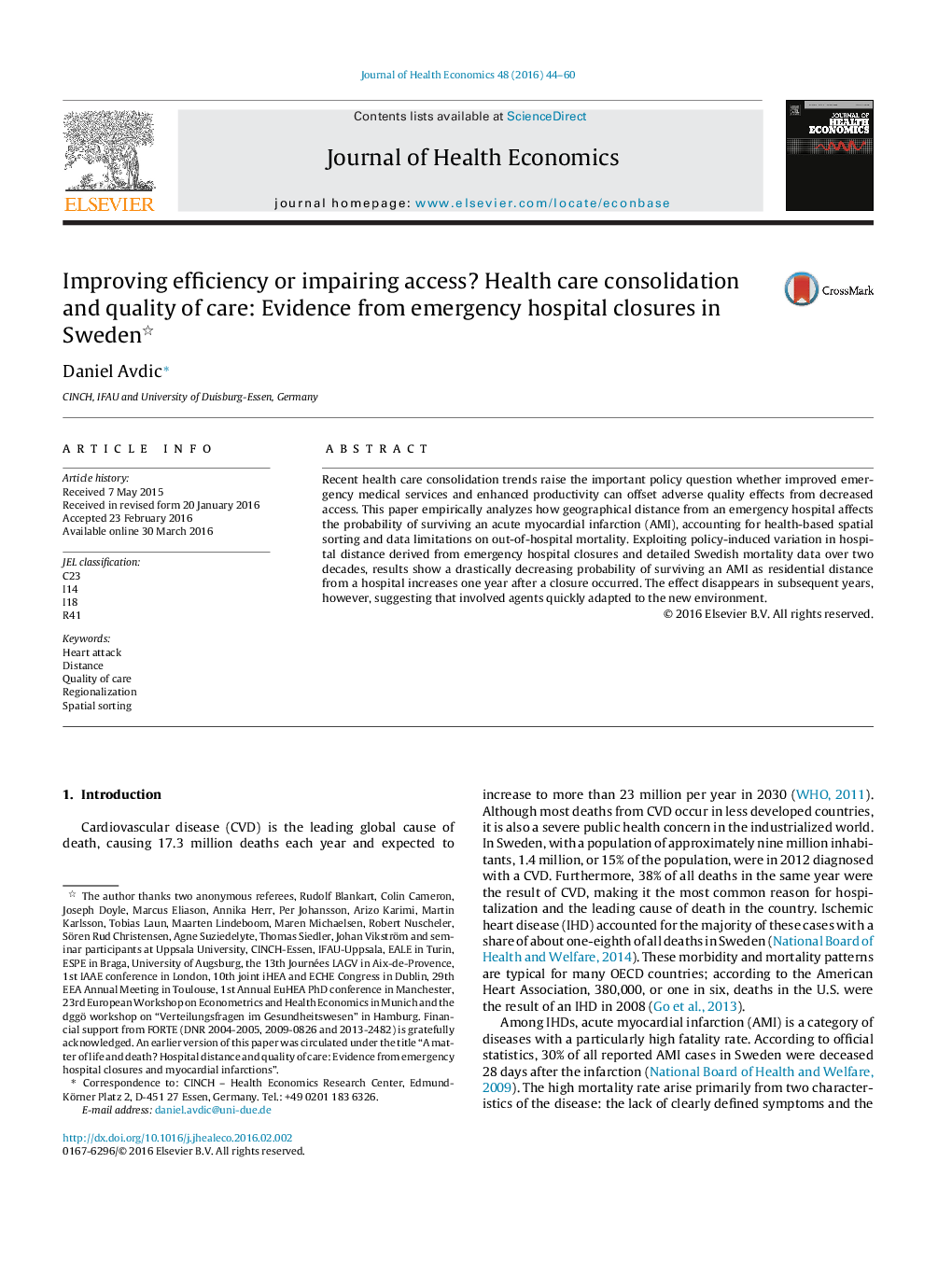| Article ID | Journal | Published Year | Pages | File Type |
|---|---|---|---|---|
| 7363171 | Journal of Health Economics | 2016 | 17 Pages |
Abstract
Recent health care consolidation trends raise the important policy question whether improved emergency medical services and enhanced productivity can offset adverse quality effects from decreased access. This paper empirically analyzes how geographical distance from an emergency hospital affects the probability of surviving an acute myocardial infarction (AMI), accounting for health-based spatial sorting and data limitations on out-of-hospital mortality. Exploiting policy-induced variation in hospital distance derived from emergency hospital closures and detailed Swedish mortality data over two decades, results show a drastically decreasing probability of surviving an AMI as residential distance from a hospital increases one year after a closure occurred. The effect disappears in subsequent years, however, suggesting that involved agents quickly adapted to the new environment.
Related Topics
Health Sciences
Medicine and Dentistry
Public Health and Health Policy
Authors
Daniel Avdic,
